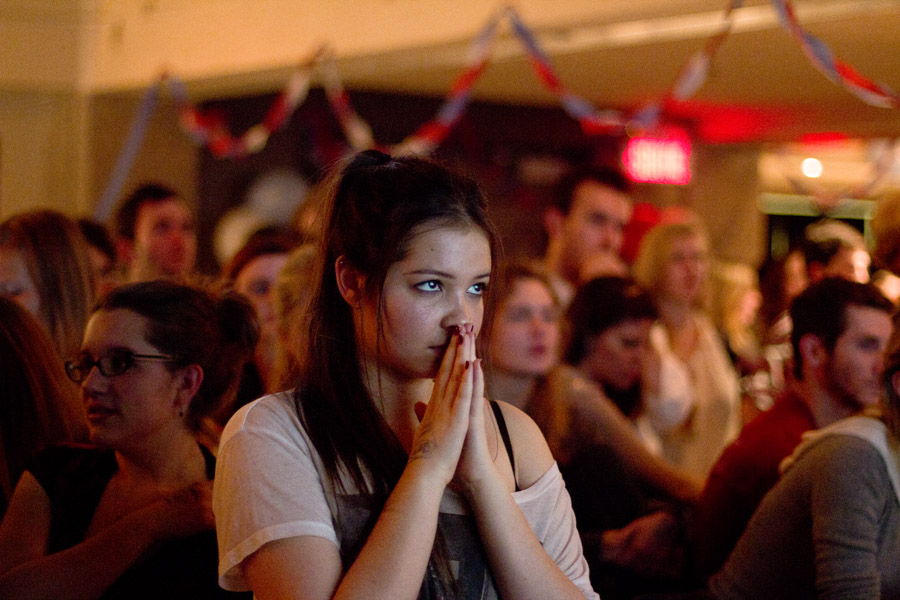In the Nov. 6 American presidential election, Democrat incumbent Barack Obama secured a narrow win over Republican nominee and former Massachusetts Governor Mitt Romney.
Although Obama gained a 332-206 lead in electoral college votes, his share of the popular vote—just over 50 per cent—was notably lower than the 52.7 per cent he had in 2008.
Although the unemployment rate in the United States has dropped from a peak of 10 per cent in 2007 to 7.9 per cent last month, the American economy remains a concern in light of slow GDP recovery, pending tax increases and spending cuts, to take place in late 2012 and early 2013 (known as the fiscal cliff), and a $16 trillion deficit.
Last week, several McGill professors explored the implications of Obama’s re-election, including the challenges he will face and the opportunity he has to redefine his legacy as an American president.
McGill professor Gil Troy, who specializes in modern American history, keeps a blog aimed at informing students about American politics. In an entry posted Nov. 7, Troy describes several key challenges that Obama faces in his second term, including unemployment, health care, and the ‘second-term curse,’ which refers to presidents’ historically diminished effectiveness.
“The man who promised to change Washington and heal the nation cannot continue to be proof that Washington is gridlocked and the nation hopelessly divided,” Troy wrote. “Obama’s legacy will be shaped by his ability to live up to his 2008 vow to create a new kind of politics. Blaming Republican obstructionism for his failure is not good enough.”
Regarding U.S. foreign policy, professor Mark Brawley of the political science department argued that relations with Arab Spring countries, and countries whose foreign policies may significantly affect their regional neighbours—such as China, Iran and Syria—will remain a concern. However, Brawley said, Obama and Romney did not have significantly different views on foreign policy. He emphasized the limitations of U.S. presidents with regards to international relations.
“I don’t think it matters that much for international relations who wins the election,” Brawley said at a Bipartisan Symposium organized by the Political Science Student Association last Monday. “No matter what they want, they are constrained by other actors like Congress and Senate.”
Leadership transitions in China and an unstable Middle East leave many unknown variables these regions. Brawley pointed to Obama’s previous tactics in the face of terrorism, such as reducing conventional force in favour of drone strikes, as well as Obama’s moderate responses to unexpected events such as the Arab Spring. Brawley predicted that the U.S. president will remain reactive and diplomatic, rather than aggressive and heavy-handed.
On Nov. 6, McGill students gathered at venues around campus to follow developments in the election. As the winner became clear, a wide range of emotion surfaced among the students.
“I think Obama was a huge disappointment for us in a lot of ways in the past four years, but I’d rather choose [a moderate candidate] over one who is keen on alienating China, bombing Iran, and neglecting the poor,” Kate Walsh, an American U1 arts student, said.
Other students were disappointed with the results, including Romney supporter and U2 arts student Alex Greene.
“I get that lots of people—especially people here—think he’s a rich, out-of-touch phony, but I think the fact that he’s pragmatic and business friendly might actually be what America needs right now,” Greene said. “Obama screwed up things like XL pipeline, [No Child Left Behind], and basically left a huge mess with ObamaCare. I’m not too sure if having him for four more years is a great idea.”








